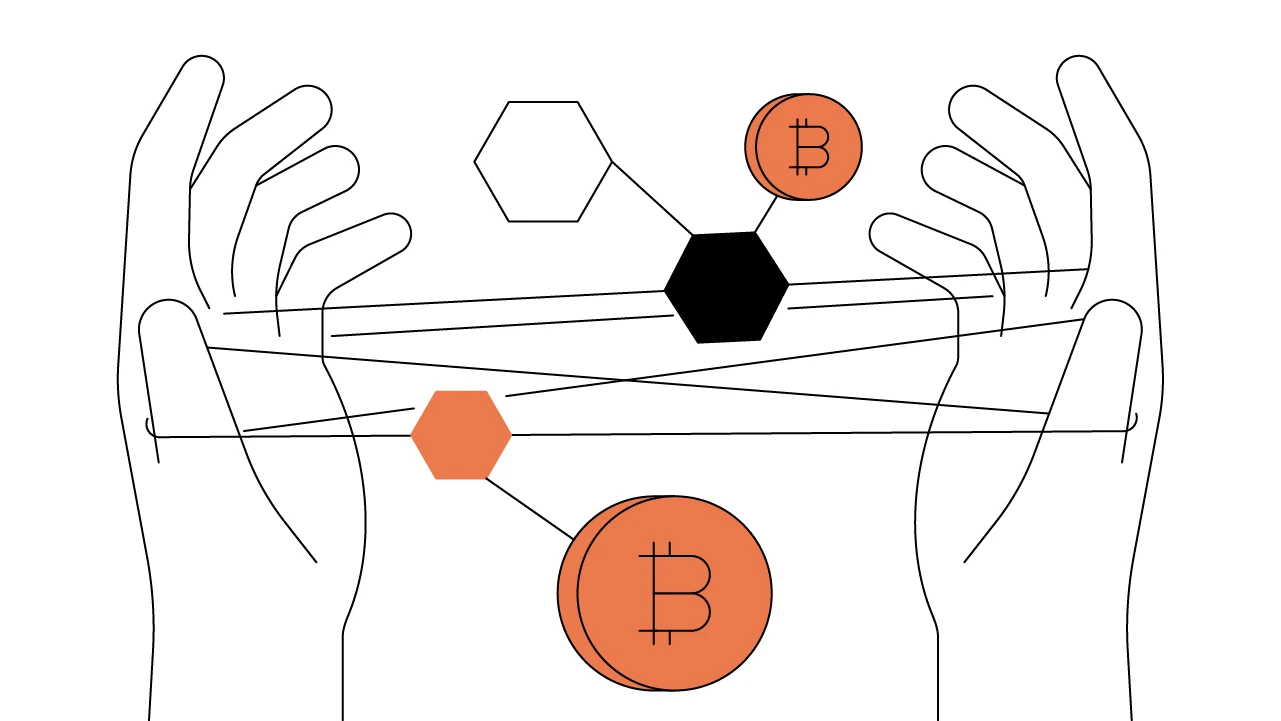Open Finance vs. Decentralized Finance
The open finance and decentralized finance (DeFi) sectors are both growing rapidly, but they have some key differences.
Updated June 28, 2022 • 3 min read

Summary
Open finance refers to the trend of FinTech companies using blockchain technology and API-based integration with banking services in the traditional financial system. The resulting solutions improve data transparency to enhance service offerings and empower consumers to make better financial decisions. However, these entities remain grounded in existing centralized infrastructure and fiat currency. In contrast, DeFi applications — which exist on the blockchain — use cryptocurrency and smart contract functionality to eliminate intermediaries and facilitate consumer autonomy.
The financial technology (FinTech) industry is experiencing exponential growth, which in turn is giving people all over the world unprecedented access to financial management tools and services that were simply not available previously. In 2020, the average smartphone user had an average of 2.5 finance and banking apps in their pocket at all times.
Once steadfast in their walled-off approach, banks and financial institutions are now actively opening up, seeking opportunities to give their existing, and new, customers increased access to their products and services, and expanding the range of their offerings to reach an even greater audience. While many banking apps remain proprietary, others have taken a collaborative approach with technology-first companies. This trend of cooperation between banks and third parties operating in the FinTech and blockchain space is referred to as open finance.
Concurrently, decentralized finance (DeFi) has also exhibited unprecedented utility and immense growth by removing financial institutions altogether while offering consumers powerful automation-driven, blockchain-based financial services. The sector has been a hotbed for innovation in finance and adoption of blockchain technology.
It’s abundantly clear that the world of finance is drastically and rapidly changing. But, with so many platforms competing for consumer attention, it’s a challenge to delineate open finance from decentralized finance and, importantly, decide which makes the most sense for the individual consumer. Exploring the core differences between the two sectors is a great place to start.
DeFi may at first appear as a subset of the FinTech ecosystem, but the two are fundamentally different, particularly when it comes to infrastructure, stakeholders, risk, and reward. Open finance essentially offers a facelift to established banking infrastructure and products, with an app-based experience that significantly improves the user experience and accessibility of the traditional financial system.
In contrast, the emergent DeFi ecosystem is like a whole new operating system that utilizes blockchain infrastructure and digital assets to create novel and experimental financial products without the involvement of traditional banking institutions.
Open Finance 101
Application programming interfaces (APIs) are a set of codes and their underlying protocols used to determine how different software platforms communicate and share information with each other. In the context of open finance, APIs facilitate the sharing of data between banks and third parties. Through these integrations, open finance aims to aggregate consumer data into a single fully accessible location.
Open finance relies on existing infrastructure to deliver services. Although open finance makes data more readily available, centralized banks and third parties are subject to existing governance and regulatory requirements. Under the open finance model, banks and third parties also operate as the custodians of consumer funds and data with a centralized structure that limits both security and privacy.
Decentralized Finance 101
In contrast, blockchain technology forms the basis of DeFi service-based platforms, which transact exclusively in digital assets. This rapidly expanding ecosystem exists primarily on the Ethereum blockchain, with ether (ETH) as the universal currency. However, blockchain networks like EOS, TRON, Polkadot, and Cosmos are building out DeFi platforms of their own. DeFi platforms operate with no central authority and utilize automation, smart contracts, collectivization, and crowdfunding to achieve economies of scale.
Examples of DeFi apps include decentralized exchanges (DEXs) like Uniswap, which do not hold on to your funds to execute trades. Compound is an example of a decentralized peer-to-peer (P2P) lending platform, where users can earn interest or borrow assets against collateral. Liquidity pools featured in apps like Balancer and Curve are pioneering the sector of collectivized trading pools. Real-world assets like gold can now be represented as synthetic assets, interchangeable with cryptocurrencies like ether on platforms such as Synthetix.
By employing self-executing smart contracts, DeFi allows consumers to participate without the need for intermediaries. Beyond this, many DeFi platforms are non-custodial, meaning consumers retain full control of their funds and data. As of October 2020, there was more than $10 billion locked in the global DeFi ecosystem, and projections for growth continue to increase.
Despite the concurrent acceleration of the open finance and DeFi sectors, both ecosystems function independently and offer radically different visions for finance and banking. Open finance increases convenience and access points to incumbent banking systems, whereas the decentralized financial system concerns itself primarily with digital assets and developing financial products and services for the new crypto-economy. While both open finance and decentralized finance are in the early stages of development, it seems apparent that the days of simply going to the bank are coming to an end, and that powerful financial products can now be tucked into your pocket.
Cryptopedia does not guarantee the reliability of the Site content and shall not be held liable for any errors, omissions, or inaccuracies. The opinions and views expressed in any Cryptopedia article are solely those of the author(s) and do not reflect the opinions of Gemini or its management. The information provided on the Site is for informational purposes only, and it does not constitute an endorsement of any of the products and services discussed or investment, financial, or trading advice. A qualified professional should be consulted prior to making financial decisions. Please visit our Cryptopedia Site Policy to learn more.

Is this article helpful?
 Powered by
Powered by 


